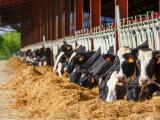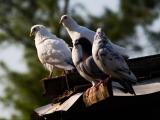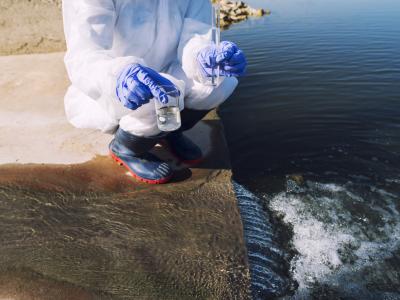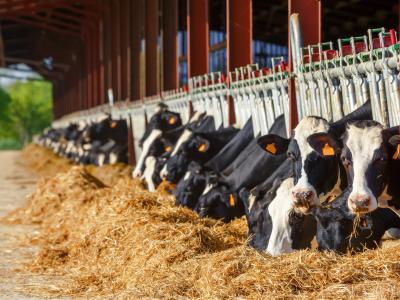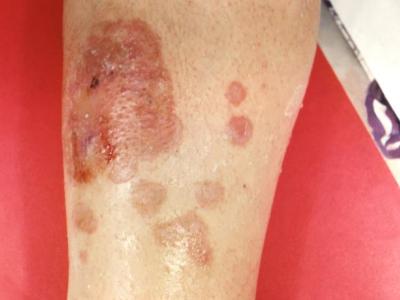Nov 1, 2004 (CIDRAP News) – The World Health Organization (WHO) has called a Nov 11 "summit" meeting of health officials and vaccine companies to discuss how to confront what is seen as the growing risk that avian influenza will trigger a human flu pandemic.
Klaus Stohr, head of the WHO's influenza program, said 16 vaccine companies and health officials from the United States and other major countries have agreed to attend the meeting in Geneva, Switzerland, according to an Associated Press (AP) report today.
"We believe that we are closer to the next pandemic than we ever were," Stohr was quoted as saying in an interview yesterday, before he spoke at an American Society for Microbiology conference in Washington, DC.
H5N1 avian flu has infected poultry flocks across much of Southeast Asia this year and also infected 44 people, killing 32 of them. The virus has not acquired the ability to spread quickly from person to person, but disease experts say that could happen, potentially leading to the first flu pandemic since 1968.
Public health leaders are worried about a likely drastic shortage of effective vaccine and antiviral drugs if a pandemic threatens. The AP quoted Stohr as saying that the world's total vaccine production capacity is only 300 million doses and that it would take at least 6 months to develop a vaccine for a pandemic virus.
"If we continue as we are now, there will be no vaccine available, let alone antivirals, when the next pandemic starts," Stohr said. "We have a window of opportunity now to prepare ourselves."
Vaccine manufacturers from Russia, Japan, and several European countries were invited to the meeting, the AP reported.
Last September the US government awarded a contract to Aventis Pasteur to make 2 million doses of a vaccine to protect people from the H5N1 virus. Officials have said there is no guarantee that the vaccine would work if the virus mutated and triggered a pandemic, but it offers the best possible protection for now.
In other recent developments, the WHO reported Oct 29 that a woman who died of avian flu in a family cluster of cases in Thailand was not infected with a potentially pandemic form of the virus, according to news services.
The cluster of cases had sparked concern about possible person-to-person spread of the H5N1 virus. But an Agence France-Presse (AFP) report quoted Stohr as saying, "It's not a pandemic virus, it's not transmissible on a large scale."
Testing by the US Centers for Disease Control and Prevention indicated the virus had not mutated into a readily transmissible form, Stohr was quoted as saying. He said the tests showed that the virus isolated from the woman was "pure avian flu virus."
The woman, Pranee Krongkaew, died of avian flu Sep 20, nine days after her 11-year-old daughter had died of probable avian flu. Officials feared that the mother had acquired the disease from her daughter while caring for her in a hospital.
The 11-year-old girl lived with her aunt and a 6-year-old cousin in a household in northern Thailand where chickens had died, according to previous reports. The aunt and cousin also were infected with avian flu, and all three cases were believed to have resulted from exposure to infected birds. But the 11-year-old's mother had been living near Bangkok, and it was unclear whether she had been exposed to infected poultry.
In other news, Thai Prime Minister Thaksin Shinawatra said he was satisfied with Thailand's October campaign to stamp out avian flu, even though the virus is still present, according to an AFP report today.
On Oct 1 Thailand launched a month-long campaign against the virus. Thaksin was quoted as saying today, "I consider that the situation today has been significantly improved and will take a closer look at what the obstacles still are and where to focus and mobilize all forces to tackle it."
Deputy Prime Minister Chaturon Chaisung said the fact that only one new human case of avian flu occurred in October was a sign of the campaign's effectiveness, even though many new poultry outbreaks were reported, according to the report.
William Aldis, the WHO's representative in Thailand, called the Thai government's efforts "vigorous and rigorous," AFP reported.
See also:
Sep 28, 2004, CIDRAP News story, "New avian flu cases confirmed in Thailand, human transmission suspected"




